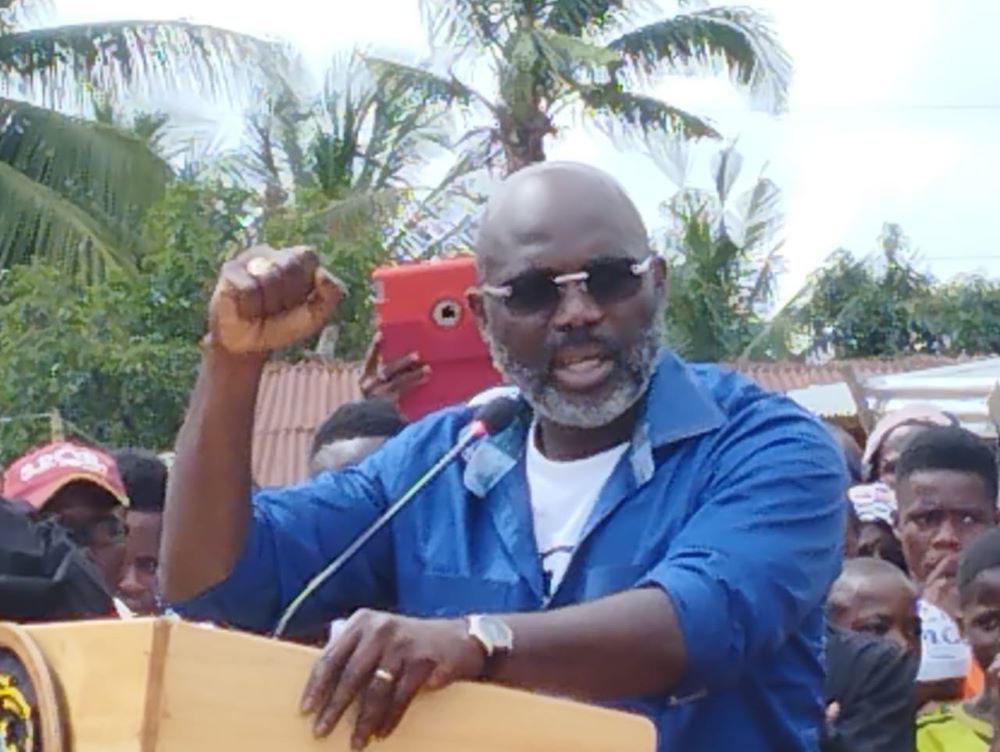Former Liberian President George Weah, in a recent address at his church, expressed profound disappointment over his electoral defeat in 2023. While he had previously conceded defeat and congratulated his successor, President Joseph Boakai, his recent comments reveal a deep-seated frustration with the Liberian electorate. He believes that Liberians are now regretting their decision to vote him out, citing what he perceives as the Boakai administration’s mismanagement and the deteriorating conditions in the country. Weah feels betrayed by the very people he believes he championed during challenging times, suggesting that he served as a “safe haven” for a nation in need, only to be cast aside in favor of a path leading back to hardship. He further laments the alleged suffering and deaths occurring under the current administration, implicitly contrasting it with his own tenure.
Weah’s narrative positions him as a selfless leader who stood up for Liberia when it was most vulnerable. He recounts past sacrifices, including having his home looted and burned, all in the name of advocating for the Liberian people. He contrasts this with the perceived ingratitude of the electorate, who, he claims, have chosen to regress by electing the current administration. He portrays himself as a figure who brought progress and stability, only to be unjustly replaced by a leadership he deems incompetent. This narrative emphasizes the personal cost of his political service and underscores his perceived betrayal by the people he sought to serve.
The former president’s disappointment extends beyond his personal loss; he perceives the current political climate as one of decline and mismanagement. He criticizes President Boakai’s governance, alleging a lack of rule of law and a disregard for the well-being of the Liberian people. He paints a bleak picture of the nation’s current state, emphasizing the suffering and hardship faced by citizens. This portrayal serves to bolster his argument that Liberians made a grave mistake in voting him out, and are now experiencing the consequences of their decision.
In defense of Senator Edwin Snowe, a vocal critic of the Boakai administration, Weah invokes the principles of democracy and freedom of speech. He argues that Snowe, like any individual in a competitive environment, would naturally not wish for his opponent to succeed. He draws a parallel between Snowe’s criticisms and Boakai’s own past pronouncements, highlighting the hypocrisy of condemning Snowe while accepting Boakai’s previous statements. He stresses that in a democratic society, everyone is entitled to their opinion, regardless of their political affiliation.
Weah’s defense of Snowe serves a dual purpose: it reinforces his commitment to democratic principles and simultaneously deflects criticism from his own camp. By invoking freedom of speech, he legitimizes Snowe’s criticisms of the Boakai administration, even if those criticisms are harsh or controversial. This strategy allows him to indirectly attack the current government while upholding the ideals of democratic discourse.
This entire narrative, delivered from the pulpit of his church, carries a significant weight. Speaking within a religious context adds a layer of moral authority to his message, framing his political pronouncements within a spiritual framework. This setting allows him to connect with his supporters on a deeper level, reinforcing his image as a righteous leader who has been unjustly wronged. The church becomes a platform not only for expressing his personal disappointment but also for subtly rallying his base and solidifying his role as a significant political figure even after leaving office. The choice of venue carefully blends the personal, political, and spiritual, amplifying his message and resonating with a specific segment of the Liberian population.














